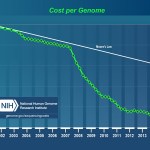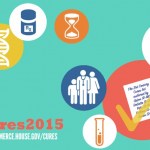precision medicine
I am fortunate to have become a physician in a time of great scientific progress. Back when I was in college and medical school, the thought that we would one day be able to sequence the human genome (and now sequence hundreds of cancer genomes), to measure the expression of every gene in the genome simultaneously on a single "gene chip," and to assess the relative abundance of every RNA transcript, coding and noncoding (such as microRNAs) simultaneously through next generation sequencing (NGS) techniques was considered, if not science fiction, so far off in the future as to be unlikely to…
The approval of new drugs and medical devices is a process fraught with scientific, political, and ethical landmines. Inherent in any such process is an unavoidable conflict between rigorous science and safety on the one side, which tend to slow the process down by requiring large randomized clinical trials that can take years, versus forces that demand faster approval. For example, patients suffering from deadly diseases demand faster approval of drugs that might give them the hope of surviving their disease, or at least of surviving considerably longer. This is a powerful force for reform,…
I've written a lot about a doctor named Stanislaw Burzynski who claims to have much better outcomes in treating deadly brainstem tumors than conventional oncology does. Although the way he claims to do it is through the use of substances he calls "antineoplastons," which he claimed to have isolate from the urine of patients. Over 35 years after having formed his own clinic and "research institute" to use these compounds to treat cancer and after having had over 60 phase I and phase II clinical trials registered with ClinicalTrials.gov, with none of these completed trials having been published…

